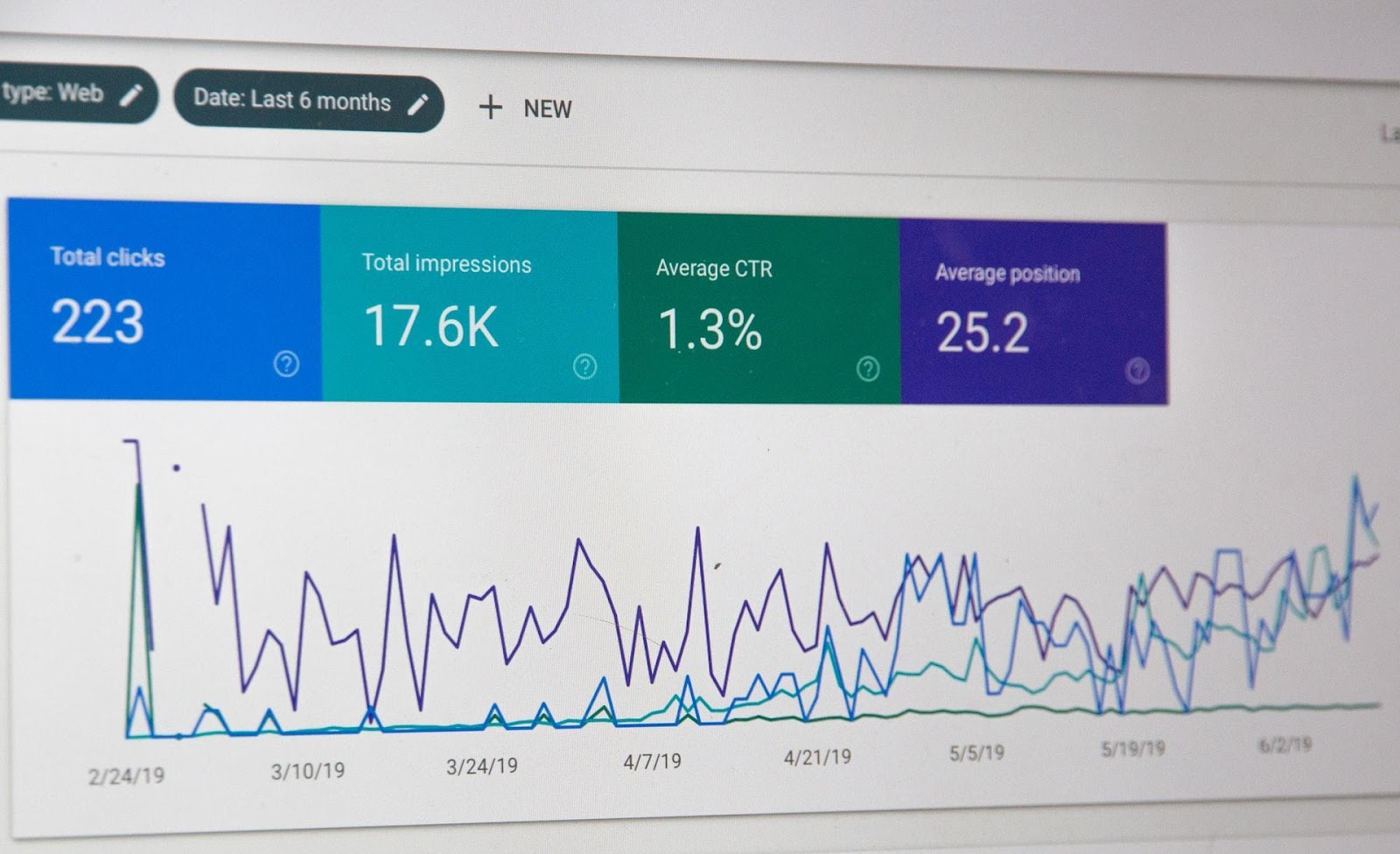Introduction
If you can be certain of two things in your life, they are change and death. Every day, the world you know is changing in some way. Most of the time, this change is a painful process, either physically or mentally. Clinging on to what you know and what you are comfortable with seems easy. However, the world does not accept what does not change. As you can see, everywhere in the natural world, change is inevitable. This is especially true in the business world and your own company. Adapting to the times is not only necessary but also advantageous. One of your greatest assets, your employees, must be receptive to these changes in market demographics, working patterns, and operational structures. The foundational stone in getting them ready for change is by cultivating a growth mindset in your employees.
Why do you need to cultivate a growth mindset in your employees?
As was mentioned earlier, the corporate world has changed. Now it needs a fast-paced operational structure with a quick decision-making process that can adapt to the times. It needs long-term goals as well as short-term goals. If the organisation focuses too much on its short-term goals, then the growth-oriented mindset that is required by the future is lost. This is why you, as a manager, must strive to keep a healthy balance between short-term and long-term goals. Without a future vision, growth can be inhibited, and thus your company's adaptability suffers. This in turn results in incompetency in your industry.
What is a growth mindset?
The term "growth mindset" was coined by Carol Dwerk, a Stanford University professor, in her book Mindset: The New Psychology of Success. Here, she explains, individuals with a growth mindset believe they're not limited by inherent traits. Instead, they believe in their capacity to learn, grow, and improve according to the circumstances. This mindset is in contrast with a fixed mindset. Individuals with a fixed mindset believe they cannot change some of their characteristics because they form a core part of them. This mindset is found in both individuals and at an organisational level. If you find your employees or your organisation exhibiting this fixed mindset, then you must change it to a growth mindset to make it more competitive.
Benefits of a Growth Mindset in the Workplace
Here are some benefits of a growth-oriented company.
1. Increased Trust
 According to a Harvard Business Review survey, employees in a growth mindset company are 47% more likely to say that their colleagues are trustworthy. The hypothesis is that an employee base with a fixed mindset can create a focused work environment. It can create a rat race in your company which benefits none of your workers as well as your company. Due to their fixed mindset, employees view their colleagues as competitors instead of collaborators.
According to a Harvard Business Review survey, employees in a growth mindset company are 47% more likely to say that their colleagues are trustworthy. The hypothesis is that an employee base with a fixed mindset can create a focused work environment. It can create a rat race in your company which benefits none of your workers as well as your company. Due to their fixed mindset, employees view their colleagues as competitors instead of collaborators.
They miss out on the bigger picture, which is to serve their company with their team. This unhealthy competition to prove oneself can pave the way to a lack of trust in your team. Without trust, which is the bond that holds teams together, your organisation now stands on shaky ground. Especially in modern times, where employee retention is a major headache, this can have adverse effects on your team's spirit.
A growth-oriented corporate culture, however, reverses these effects. In such companies, trust can get things done more effectively, efficiently, and competitively. As was shown in this survey, trust between managers and workers can work wonders.
2. Better Morale
A significant morale booster is having employees feel valued and trusted to grow with the business. According to the Harvard Business Review survey, employees in organisations with development mindsets are 34% more likely to experience a strong sense of commitment to the organisation. Growth-oriented employees understand leadership when they are judged for their efforts. In such organisations, creativity and individual efforts get more recognition than the employees' traits of short-term thinking. A growth-oriented company can look up to its employees' suggestions and ideas and thus avoid several traps that the management might have overlooked. Here, employees want the company to grow and give their valuable input so that they can grow together as an organisation. Even in the management sector, higher management is open-minded and receptive to the suggestions of the employees.
3. Increased Innovation and Risk-Taking
Innovation and risk-taking are two areas that give companies an edge in today's competitive world. based on an HBR survey. If one works for a company that embraces a growth mindset, they are 65% more likely to report that their employer encourages risk-taking. They are also 49% more likely to say that their company encourages innovation.
A fixed-mind organisation is reluctant to indulge in both these activities because it believes in preconceived notions and limits. Hence, it focuses on short-term goals and loses out on future possibilities by neglecting innovation and calculated risk-taking.
How to Develop a Growth Mindset at Work
At first glance, changing your employees' mindset seems like an impossible task. It is because mindsets are highly personal and are not something an organisation can control like they can control their computers. However, this is a misconception. Individuals respond to the social circle they live in better. If you take the initiative and create a working environment where a growth-oriented employee can flourish, then individuals will follow your lead and take up the challenge. Individual mindsets are highly responsive to community triggers.
Here are five simple steps you can take to cultivate a growth mindset in your employees and organisation.
1. Create a feedback loop.
 Creating a positive feedback loop is necessary for cultivating a growth mindset in your employees. First, review your feedback system and operational structure. Identify in which key areas your company is ignoring your employees' efforts. Create a system to recognise and reward efforts rather than focusing solely on your KPIs or statistics. Such a system can create unhealthy competition among your employees. Reaching a milestone like selling several units in a timeline or completing several projects within a deadline can put pressure on your employees and poison team spirit.
Creating a positive feedback loop is necessary for cultivating a growth mindset in your employees. First, review your feedback system and operational structure. Identify in which key areas your company is ignoring your employees' efforts. Create a system to recognise and reward efforts rather than focusing solely on your KPIs or statistics. Such a system can create unhealthy competition among your employees. Reaching a milestone like selling several units in a timeline or completing several projects within a deadline can put pressure on your employees and poison team spirit.
Instead of putting one against another with such a system, management can create a system where importance and recognition are given to employees' learning and efforts. Those who are receptive to new ideas and teaching can be trained. Such employees are better assets to a company. To execute such a feedback system, discuss with your employees and management the goals and action steps to achieve them. Offer mentorship, training, and workshops to enhance employee skills. Create a channel for communication.
2. Upgrade your goal-setting framework.
The goal-setting process is an important factor in forming the mindsets of employees. You must have a proper goal-setting framework like the OKR framework or SMART framework for better employee cooperation. Setting goals based on your employees' opinions and their learning progress can help them become familiar with the growth-oriented work culture. Make sure that your goals have realistic and achievable targets while leaving plenty of room for learning. Consider your employees' opinions based on their potential and learning styles. The OKR framework can simplify the process of goal setting. While the results are often impossible to achieve and based on numbers, it is up to the management to identify the level of effort and learning by individual employees and reward them accordingly.
3. Reward learning over success or failure.
When projects fail, it can adversely impact employee morale or confidence. Not everyone knows how to deal with failure, and this might affect them in the form of disengagement. A decrease in confidence can put employees on the defensive, and they may not share their ideas for future projects. This in turn can hinder a growth mindset and make the organisation fall into the trap of a fixed mindset.
Hence, management should be prepared to deal with failures and encourage the employees with the lessons a failure teaches. Failures, when they are documented, can give you valuable information that you can implement in your future projects. Keeping tabs on the data and learning from the projects instead of looking at the results gets your organisation far ahead.
4. Encourage self-learning opportunities.
 Learning as an adult requires certain conditions to be met. It is not always possible to teach adults as you do with children. For adults to learn, the subject must be worth their time and effort. Nobody wants to learn something that will not help them make their work or life easier or better. Unlike schoolers, employees have too much on their plates. They balance their family and work requirements every day. They must also attend to their personal and social lives to keep their emotional well-being steady. This leaves less and less time for them to learn something if it's not going to help them.
Learning as an adult requires certain conditions to be met. It is not always possible to teach adults as you do with children. For adults to learn, the subject must be worth their time and effort. Nobody wants to learn something that will not help them make their work or life easier or better. Unlike schoolers, employees have too much on their plates. They balance their family and work requirements every day. They must also attend to their personal and social lives to keep their emotional well-being steady. This leaves less and less time for them to learn something if it's not going to help them.
This is why you must encourage them to self-learn while also cultivating a learning environment with a pressing need to learn something. Often, knowledge of certain industry databases evades even senior professionals' attention. In such cases, self-learning driven by a sense of curiosity helps your employees learn more efficiently than a structured training session or workshop.
5. Create a medium for open communication.
Companies with a growth mindset recognise the importance of communication between employees and management. They understand that ideas come from unexpected sources at unexpected times. Growth-oriented leaders have recourse to only a few employees for identifying mistakes or for fresh ideas. They encourage open communication between all their employees. This gives them multiple perspectives from different employees, which helps them make better decisions. On the other hand, communication induces a growth mindset within your employees because they feel valued for their input. It forces them to think deeper, provide better contributions through their unique thought process, and finally encourages a growth mindset in them.
6. Upskill and reskill your employees.
Skill gaps are going to be a major challenge for companies in the future. The exponential growth of technology nowadays is quickly closing the employee shortage and skills gap in several industries. If the trend continues further, employees in roles that are likely to be replaced by technology must be upskilled to keep the economy sustainable. A growth mindset drives employees to pursue lifelong learning and skill enhancements, thus helping them possess employability qualities and higher positions. It helps them move up the corporate ladder faster than the machines that are taking over low-level jobs.
7. Provide employees with guidance
 Just because the previous steps, like self-learning, induce employees to be curious and provide them with higher levels of engagement, doesn't mean that you should be passive in their shift. Management should take an active role in changing their employees' mindsets. One way to do this is by giving them guidance from experts. Often, a weekly structured training program can impact employees' mindsets and open their minds to fresh perspectives. It gives them hope and the courage to pursue their ideals. For example, a mindset workshop held by the management opens them up to the idea of a growth mindset. It introduces them to new possibilities and exposes their minds to future possibilities.
Just because the previous steps, like self-learning, induce employees to be curious and provide them with higher levels of engagement, doesn't mean that you should be passive in their shift. Management should take an active role in changing their employees' mindsets. One way to do this is by giving them guidance from experts. Often, a weekly structured training program can impact employees' mindsets and open their minds to fresh perspectives. It gives them hope and the courage to pursue their ideals. For example, a mindset workshop held by the management opens them up to the idea of a growth mindset. It introduces them to new possibilities and exposes their minds to future possibilities.
You can also encourage your employees to engage in cross-domain learning through these classes. Often, employees choose an industry due to circumstances that are far from their original passion or interest. In such cases, cross-domain learning allows them to work and experiment in different sectors. This in turn boosts your employees' ability to develop a growth mindset rather than feeling stuck in a job with a fixed mindset with little control over their careers.
Conclusion
Cultivating a growth mindset in your employees, organisation, or yourself is a long-term project. You can expect progress but not immediate results. However, the wait is worth the pain. You must take specific steps and initiatives to bring about this much-needed change in mindset. Unlike a fixed mindset, the growth mindset works wonders in your organisation. Your employees will feel a sense of belonging and appreciation for their ideas. It minimises competition and promotes cooperation among employees. They will take risks and innovate according to their thought process.
As a compounding effect, your organisation will be more resilient, adaptive, and competitive. A growth-oriented employee base will help you sail through this dynamic corporate world. Finally, a growth mindset puts you on the right path with a focus on your company's long-term goals rather than settling for short-term successes.
Now you can pursue a prestigious UK Masters degree through SNATIKA's trusted online platform. Our programs are only 12 months long and provide you with several benefits, like dual qualifications, ISO 9001:2015 certification for our admission and academic delivery process, and the shortest duration. Visit SNATIKA to learn more.